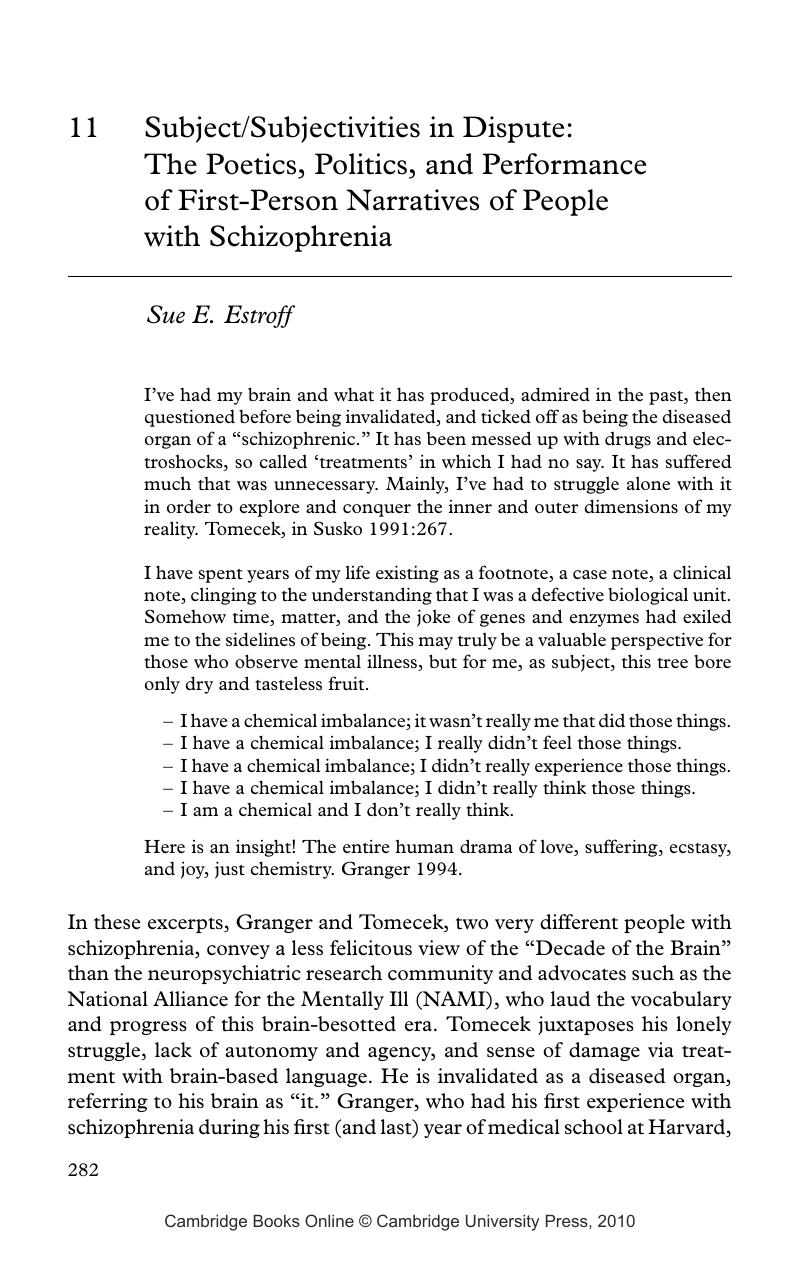Book contents
- Frontmatter
- Contents
- Contributors
- Preface
- Acknowledgments
- Schizophrenia, Culture, and Subjectivity
- Introduction
- Part 1 Culture, Self, and Experience
- Part 2 Four Approaches for Investigating the Experience of Schizophrenia
- Part 3 Subjectivity and Emotion
- 10 Madness in Zanzibar: An Exploration of Lived Experience
- 11 Subject/Subjectivities in Dispute: The Poetics, Politics, and Performance of First-Person Narratives of People with Schizophrenia
- 12 “Negative Symptoms,” Commonsense, and Cultural Disembedding in the Modern Age
- 13 Subjective Experience of Emotion in Schizophrenia
- Index
- References
11 - Subject/Subjectivities in Dispute: The Poetics, Politics, and Performance of First-Person Narratives of People with Schizophrenia
Published online by Cambridge University Press: 25 January 2010
- Frontmatter
- Contents
- Contributors
- Preface
- Acknowledgments
- Schizophrenia, Culture, and Subjectivity
- Introduction
- Part 1 Culture, Self, and Experience
- Part 2 Four Approaches for Investigating the Experience of Schizophrenia
- Part 3 Subjectivity and Emotion
- 10 Madness in Zanzibar: An Exploration of Lived Experience
- 11 Subject/Subjectivities in Dispute: The Poetics, Politics, and Performance of First-Person Narratives of People with Schizophrenia
- 12 “Negative Symptoms,” Commonsense, and Cultural Disembedding in the Modern Age
- 13 Subjective Experience of Emotion in Schizophrenia
- Index
- References
Summary

- Type
- Chapter
- Information
- Schizophrenia, Culture, and SubjectivityThe Edge of Experience, pp. 282 - 302Publisher: Cambridge University PressPrint publication year: 2003
References
- 5
- Cited by



